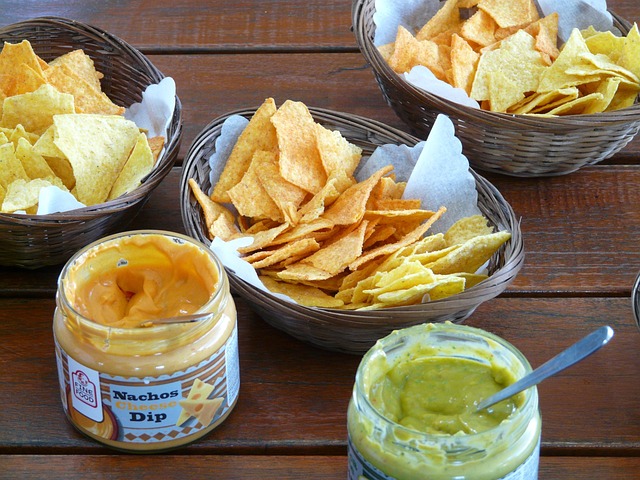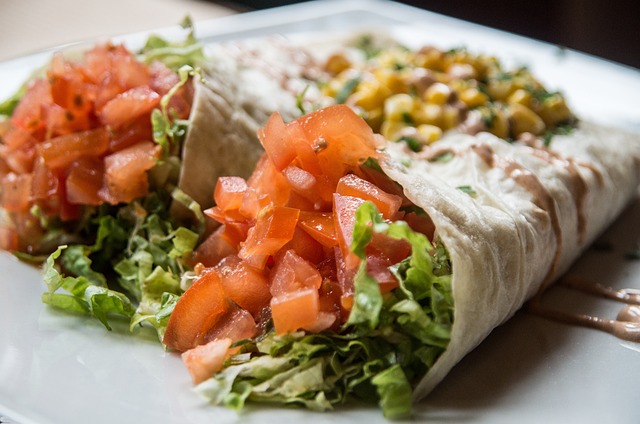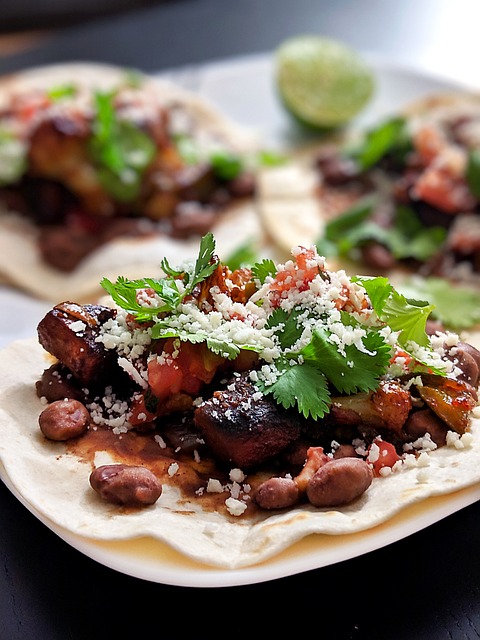Classic Tortilla Chips, especially El Ranchero-style, are a symbol of Mexican culinary heritage. Made with simple, high-quality ingredients like corn or wheat flour, these chips are crafted through a time-honored process involving cutting fresh tortillas into strips and frying them until crispy. El Ranchero's unique cooking method gives them a distinct charred edge, enhancing their smoky, crunchy texture and flavor profile. These chips pair perfectly with dips and offer an authentic Mexican dining experience, remaining a beloved staple worldwide.
“Discover the crispy essence of Mexican cuisine with a focus on the beloved tortilla chip. This article explores the rich history and tradition behind handmade chips, delving into their classic preparation methods and unique regional variations like El Ranchero style. We uncover why these authentically handcrafted chips are an indispensable element in any Mexican restaurant, offering a taste experience that transcends mass-produced alternatives. From traditional ingredients to innovative twists, get ready to crunch into the world of Classic Tortilla Chips and El Ranchero delights.”
- The History and Tradition of Handmade Tortilla Chips
- Classic Tortilla Chips: Ingredients and Production Methods
- El Ranchero Style: A Unique Twist on a Mexican Favorite
- Why Authentic Handmade Chips Are a Must-Have in Mexican Restaurants
The History and Tradition of Handmade Tortilla Chips

Handmade tortilla chips have a rich history deeply rooted in Mexican culture, dating back centuries. Traditionally, they were crafted by hand, starting with fresh corn tortillas cut into thin strips and then fried until crispy. This labor-intensive process resulted in a classic tortilla chip that’s not only delicious but also carries the essence of Mexico’s culinary heritage. The simple yet satisfying snack became a staple in Mexican households and eventually found its way to tables worldwide, solidifying its place as an international favorite.
El Ranchero, known for its authentic flavors and quality ingredients, has been synonymous with high-quality classic tortilla chips. These chips represent the quintessential Mexican street food experience, where fresh-made tortillas are transformed into a crisp, golden snack that pairs perfectly with any dip or sauce. The tradition continues today, with many families still making their own versions at home, preserving the legacy of this beloved Mexican delicacy.
Classic Tortilla Chips: Ingredients and Production Methods

Classic Tortilla Chips, a staple in Mexican restaurants, are more than just a side dish; they’re a culinary symbol of Mexico’s rich cultural heritage. El Ranchero-style chips, known for their distinctive taste and texture, are crafted from simple yet premium ingredients. The foundation lies in 100% corn or wheat flour, carefully mixed with water, salt, and sometimes a touch of lime juice, creating a dough that embodies the essence of traditional Mexican cooking.
After forming the dough into thin, circular shapes, they are fried in vegetable oil at high temperatures, resulting in crispy, golden chips. El Ranchero-style chips often feature a unique, slightly charred edge, achieved by direct contact with the hot oil. This meticulous production method not only ensures a delightful crunch but also captures the authentic flavors that define Mexican cuisine.
El Ranchero Style: A Unique Twist on a Mexican Favorite

El Ranchero-style tortilla chips offer a unique twist on a classic Mexican favorite, adding a smoky, savory dimension to this beloved snack. Unlike their simple, plain counterparts, these chips are infused with a distinct taste that evokes the authentic flavors of rural Mexico. The process involves slowly cooking corn tortillas over open flames, giving them a charred edge and an irresistibly crunchy texture. This traditional method not only enhances the visual appeal but also creates a complex flavor profile that captivates the senses.
Each chip is carefully crafted to balance the delicate smoke from the open fire with the subtle sweetness of the corn. The result is a delectable snack that stands out on any menu, appealing to both traditionalists and those seeking new culinary experiences. El Ranchero-style chips are not just an upgrade for Mexican restaurants; they offer a unique selling point, promising customers a taste adventure that goes beyond the classic tortilla chip experience.
Why Authentic Handmade Chips Are a Must-Have in Mexican Restaurants

In the realm of Mexican cuisine, authentic hand-made tortilla chips are a game-changer that elevates the dining experience. These classic tortilla chips, often referred to as El Ranchero style, are more than just a side dish; they are a testament to the restaurant’s commitment to quality and tradition. Crafted from simple, fresh ingredients, each chip is meticulously made by hand, ensuring a crispy texture and a subtle corn flavor that captivates the senses.
Unlike their mass-produced counterparts, handmade chips offer an unparalleled level of authenticity and taste. The process involves soaking and grinding corn, mixing it with water to form a dough, then rolling and shaping it into thin tortillas. These are then cut into chips, fried to perfection, and seasoned with just the right blend of salt and spices. This labor-intensive method results in a crispier, more flavorful chip that pairs exquisitely with traditional Mexican fare, such as guacamole, salsa, or simply melted cheese.
Handmade tortilla chips have become an iconic part of the Mexican dining experience, with their rich history and authentic flavors. From classic tortilla chips made from simple ingredients to unique variations like El Ranchero style, these crispy treats have captivated folks worldwide. In today’s competitive restaurant landscape, offering authentic handmade chips sets Mexican eateries apart, ensuring patrons enjoy a truly exceptional culinary journey that celebrates tradition and taste. Whether it’s the familiar crunch of classic tortilla chips or the distinctive twist of El Ranchero-style chips, these homemade delights remain a must-have on any Mexican restaurant menu.
